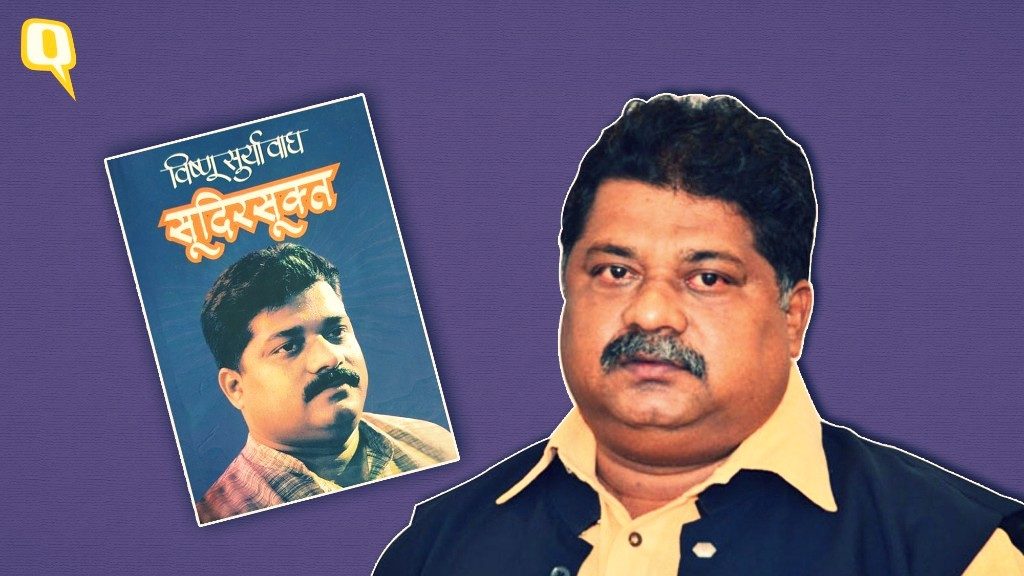
Sudirsukt- Hymns of a Shudra – The Poems of Revolt against Purusha-Sukta
According to Vedic Brahminical myths, the four Varnas were created through the body of Purusha. The word Purusha is synonyms with male and is contrasted with Prakriti (nature). These philosophical glosses on “Varna (caste) creation” myth is later day interpolation as brought out by Babasaheb Ambedkar in his research work on Vedic texts.
To counteract the modern day “body of Brahma”, former BJP MLA and Bahujan poet from Goa, Vishnu Surya Wagh, wrote poems and they were compiled into Sudirsukt: Hymns of a Shudra. In Konkani, the word for Shudra is Sudir and in the modern day Indian languages it is “Shudra”. So, it is a Shudra Sutra, as opposed to the Brahman Sutra. The book also won the Academy award of Goa and the book was published by Parrikar, who boasts of his Gaud Saraswat Brahmin (GSB) background.
The controversy erupted after four years of the publication of the book and that the book is now vile by the minority GSD in Goa and the Bahujan Goans are at the receiving end of this controversy. The great poet is now paralyzed after a stroke, but his revolutionary consciousness is moving masses about the plights of the majority Shudras in Goa.
Goa is the first state in India which saw the coming of power of the majority of the lower castes through its political mobilisation as “Maharashtrawadi Gomantak Party” under the great leadership of Tatya Bandodkar. The poet Wagh was just leading the legacy of now weakened Bahujan movement in Goa.
There are many revolutionary poems in Shudrasukta, but the one that is published in the Indian Express expresses the colour of the revolution that poet Wagh wanted to launch:
It seems Parashuram fired an arrow,
Into the sea and it receded
Repeating this tale year in and year out
They cheated the Bahujan Samaj
Through this lie they wanted to establish
That this land was created by them
You sinners: if you were the first here
Then who were the Mahars. Bhandaris, Kharvis, Pagis,
Gawdas,
Velips,
Dhangars,
Kunbis:
Who were they?
To make this land fertile
They gave their sweat and blood
Yes, yes:
They are us Sudirs….
We have no swamis
Ad we have no mathas
The sanctum of the temple is closed to us
God lies in your fist
With all your differences you are all one
whether horizontal or vertical
The caste marks on your forehead
That indicates your Mahajanship suit you well
You lean against the temple pillars
While the rath is carried on our shoulders
You can enter the sanctum sanctorum
While we hang around outside
All the prasad is yours by right
In our leaf
For generation after generation
Come pittances
Yes, yes
We are the Sudirs
The great revolutionary Bahujan poet is anti-Brahminism and he is strongly opposed to the present day institutions of the Brahminism that keeps the caste system intact.
Wagh has been openly critical of the caste-oriented social order and right-wing politics. His literature has often reflected this contour of thought.
In his 1998 Marathi play ‘Tuka Abhang Abhang’, which was about the life of 17th-century poet Tukaram, Wagh depicted him being murdered by a group of Brahmin priests. There is also a clear “us” and “them” binary in his poems.
Wagh writes, “Our ancestors… Would speak to their face. Seeing this they began to fear… And they connived to make our ancestors dumb. They built temples, They installed idols, they set up the procedures for performing pujas… They learned how to write the language and slowly, slowly they killed our language.”
Author – Mangesh Dahiwale, edited by Velivada team
Image credit – The Quint



+ There are no comments
Add yours